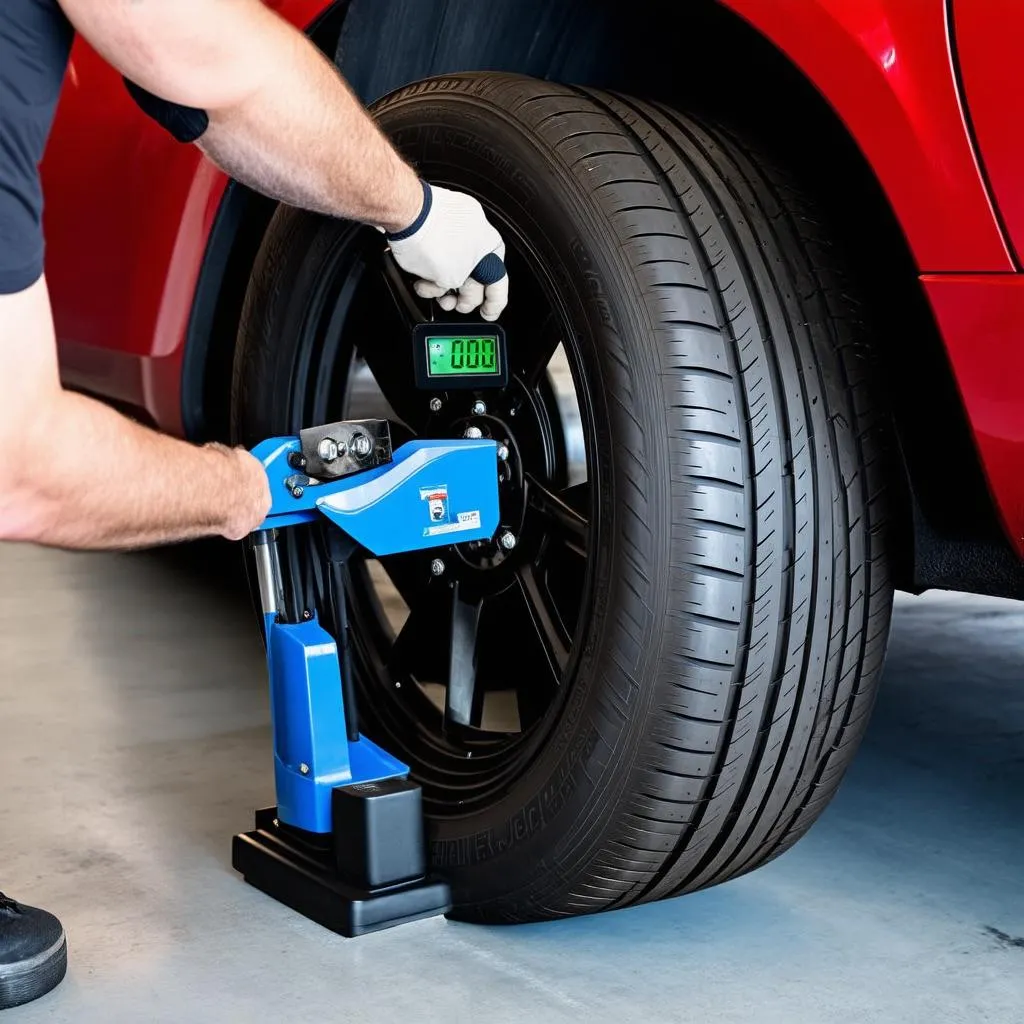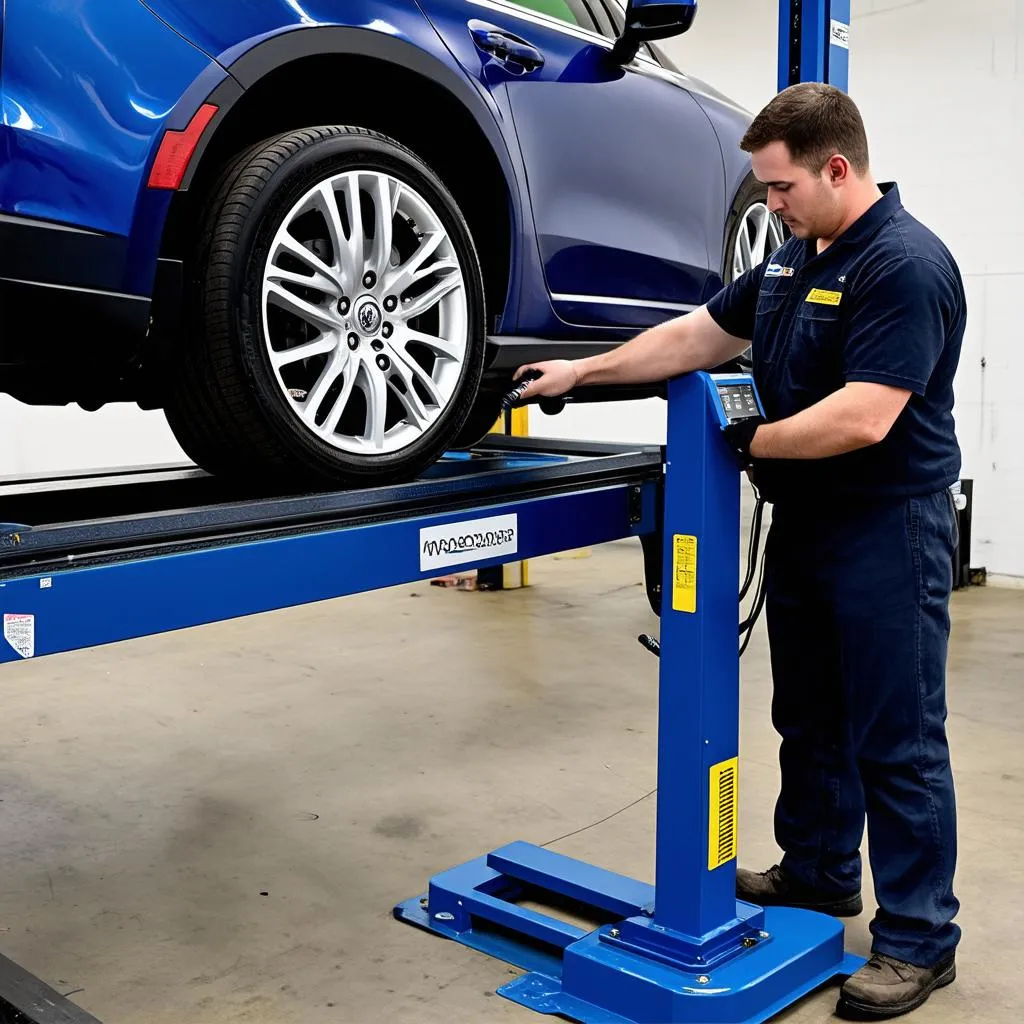Picture this: you’re cruising down the California State Route 1, the Pacific Ocean glistening on one side, the Santa Lucia Mountains towering on the other. You hit 60 mph, and suddenly, your car starts shaking like a bucking bronco. Not exactly the scenic drive you were hoping for, right?
We’ve all been there – that heart-sinking moment when your trusty vehicle throws a mechanical curveball. As a seasoned mechanic specializing in European car diagnostics, let me assure you, a car shaking over 60 mph is a common problem with a range of possible causes, most of which are easily fixable.
Why Your “Car Shaking Over 60” Question Matters
From a mechanic’s standpoint, the phrase “car shaking over 60” is like a distress signal. It tells us there’s a problem with your vehicle’s balance, alignment, or a component connected to these systems.
Technically speaking, this shaking, often felt as a vibration, indicates an issue that only manifests at higher speeds. This could mean your tires are out of balance, your wheels are misaligned, or a suspension component is worn out.
And let’s not forget the economic angle. Ignoring these vibrations can lead to more severe and expensive problems down the line.
So, What’s Making My Car Do the Jitterbug at 60 mph?
There are a few usual suspects when your car starts shaking at higher speeds:
1. Tire Troubles:
Out-of-Balance Tires: Imagine a washing machine on spin cycle with an uneven load – that’s what unbalanced tires do to your car.
Worn-Out Tires: Just like your favorite pair of sneakers, tires wear down over time, leading to uneven surfaces and, you guessed it, vibrations.
2. Alignment Aggravations:
Misaligned Wheels: When your wheels aren’t pointing in the same direction, your car can pull to one side and vibrate, especially at higher speeds. Think of a shopping cart with a wonky wheel.
3. Suspension Suspicions:
Worn Suspension Components: The suspension system, including shocks, struts, and bushings, absorbs bumps and keeps your tires glued to the road. Worn-out components can’t do their job effectively, leading to – you guessed it – a shaky ride.
Let’s Play Detective: Is It Really the Speed?
While your car shaking over 60 is a telltale sign, think about these questions:
- Does the car shake only when accelerating over 60 mph, or is it constant above that speed?
- Does the shaking occur at other speeds too, just less noticeably?
- Did you recently hit a pothole or curb?
- When was the last time you had your tires rotated and balanced or an alignment done?
Answering these questions will give you and your mechanic a clearer picture of the problem.
The Fix: Smooth Driving Is Just Around the Corner
The good news is that most of these issues can be resolved with a trip to a trusted mechanic:
- Tire Balancing: A relatively quick and inexpensive fix, often done during tire rotation.
- Wheel Alignment: Another fairly routine procedure that can work wonders for your car’s handling and tire longevity.
- Suspension Inspection and Repair: This one might require a more thorough inspection and potentially pricier repairs, depending on the worn-out component.
Don’t Ignore the Shakes!
Just like you wouldn’t ignore a flashing check engine light, don’t brush off a shaking car. Ignoring the problem will only make it worse (and likely more expensive) in the long run.
 Tire Balancing
Tire Balancing
Here are some related questions we often get from car owners:
- Why does my car shake at 60 mph? (See our article on Why Does My Car Shake at 60 mph?)
- Can a bad alignment cause shaking at high speeds?
- How much does it cost to fix a car shaking over 60 mph?
- Why is my car shaking when I start it? (For insights, check out our article: Why is My Car Shaking When I Start It?)
 Car Wheel Alignment
Car Wheel Alignment
Need Help Diagnosing Your Car Troubles?
We’re here to help! Diag XCar specializes in dealer-level diagnostic tools for European cars. Need advice on choosing the right scanner for your needs? Our team of automotive experts is available 24/7 to assist you. Contact us via WhatsApp at +84767531508, and let us help you get back on the road to a smooth and safe driving experience.